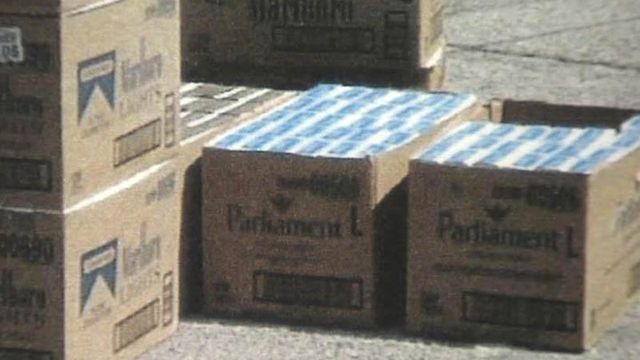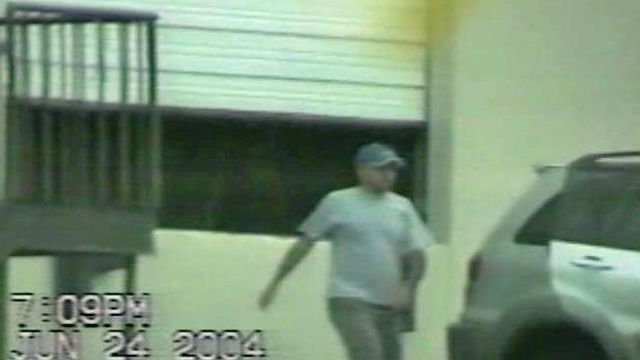ATF: Cigarette smuggling an ongoing problem in N.C.
Agents with the federal Bureau of Alcohol, Tobacco, Firearms and Explosives say they have not even "scratched the surface" when it comes to cigarette smuggling in North Carolina.
One of their biggest cases involved a business that operated from a loading dock off Gresham Lake Road in north Raleigh from 2002 to 2005. The operators made millions, according to ATF.
Raleigh agents worked undercover on the case, beginning in 2004, to track shipments and catch suspected smugglers in the act. Agents say smugglers will sometimes risk the prison time for the money they can make.
“As far as tobacco diversion, this is probably the biggest case we’ve worked,” said David Riddleberger, resident agent-in-charge of the ATF's Raleigh field office. “They had multimillion-dollar homes in California. They had expensive luxury vehicles. Everything was cash-based.”
The ATF documented the pick-up at a cigarette wholesaler, the drop-off at the loading dock off Gresham Lake Road and the delivery in California.
See ATF's pictures from the investigation in California.
The case eventually produced convictions of Avedis Djeredjian and Masis Geragosian. Yet, ATF agents say the elements that make smuggling attractive in this state still exist.
“The tax rate on a carton or a pack of cigarettes is significantly less (in North Carolina) than the rest of the country,” said ATF Supervisory Special Agent Earl Woodham.
See other states' tax rates on cigarettes.
The tax was 5 cents a pack, compared with California's 87 cents, during the investigation. North Carolina's tax is now up to 45 cents a pack, but that's still one of the lowest rates in the country.
North Carolina is one of the three states that don’t require a stamp to prove that state tax was paid – South Carolina and North Dakota are the others – and the smugglers were able to counterfeit tax stamps in California and sell cigarettes for $8.20 profit on every carton.
“The (North Carolina cigarette) pack is bald. It could be from anywhere,” Woodham said.
North Carolina lawmakers are considering a tax stamp for packs of cigarettes.
Area ATF agents said they have investigated four cases in the past eight years that resulted in federal convictions. That does not include cases that were referred back to the state for prosecution nor any of the ongoing illegal cigarette investigations, according to Woodham.
Prosecutors say Djeredjian was the ring leader in California. Geragosian worked for him in North Carolina and had a cigarette distributor license from the North Carolina Department of Revenue.
His monthly reports to the Department of Revenue showed thousands of cartons going to a business in Los Angeles. In reality, the address was a storage unit.
At one of Djeredjian's California storefronts, ATF agents found counterfeit stamps hidden in the ceiling. Agents say it was a clear case of personal greed, but that is not always the motive.
“We know that the money can go toward organized crime or terrorist organizations,” Woodham said.
In 2002, two brothers were convicted in Charlotte of smuggling cigarettes to Michigan to fund suspected Hezbollah terrorists.
Wholesalers like JR's and tobacco companies like Phillip Morris try to warn to ATF agents to suspicious purchases as well, agents said.
The paper trail, the money trail and the tobacco trail are time consuming to track, and the ATF says it's overwhelmed.
“We constantly have investigations open,” Woodham said. “We don’t know that we’ve even scratched the surface.”
For his cooperation, Geragosian received two years on probation and had to pay approximately $20,000 in restitution. Djeredjian, the accused ring leader, is behind bars for seven years and has been ordered to pay more than $6 million.
It's unclear if the two men are in the country legally. U.S. Immigration and Customs Enforcement officials said they were part of the investigation but could not answer WRAL's question about the men's status in the U.S.











